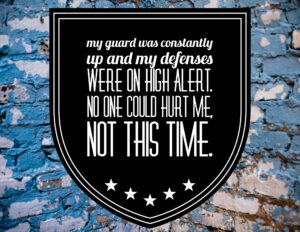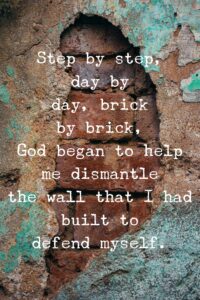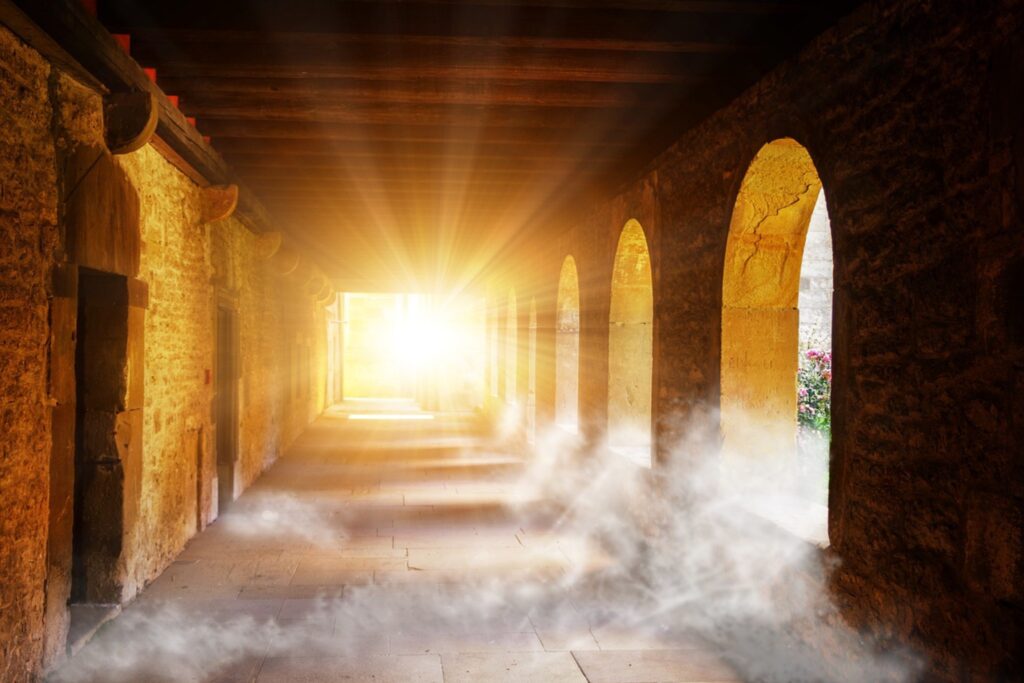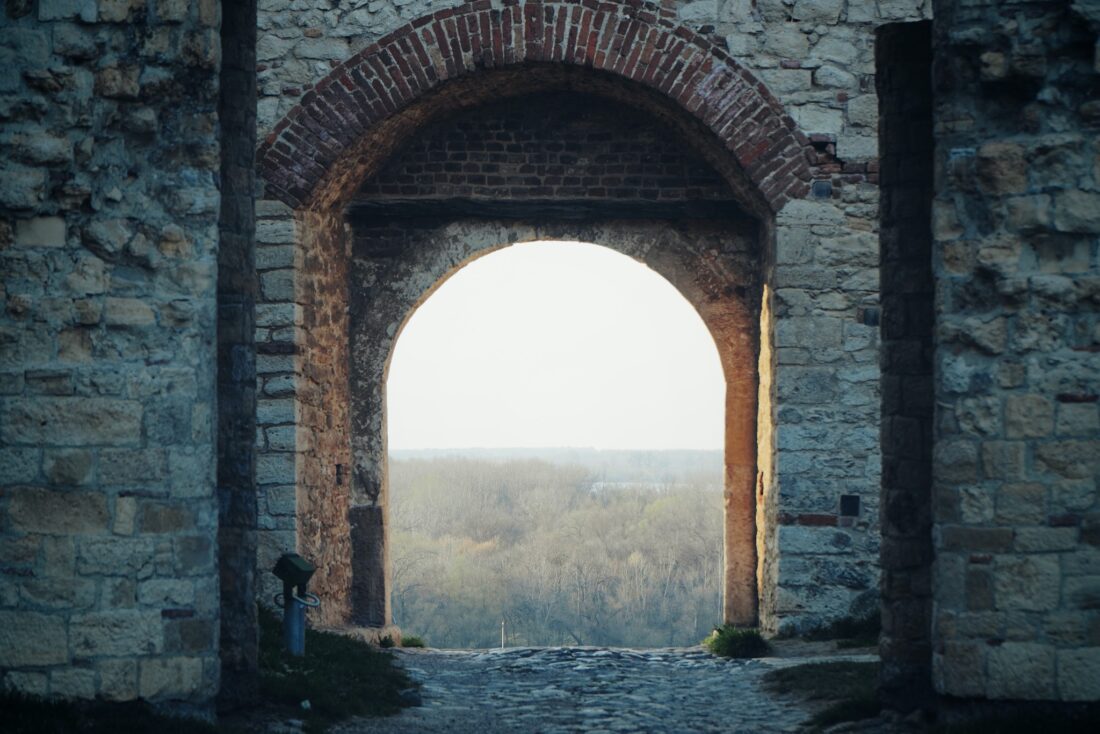The first time I had an anxiety attack, I was 16 years old and just weeks away from starting my junior year. My grandpa was visiting with us from Chicago and we were making plans to go bowling with him that day. I was so excited! Partly because I just returned from a two-month trip with him and had joined his bowling league. Hey, you’ve never experienced a bowling competition until you’ve seen elderly men going at it! With two-months-worth of bowling under my belt, I wasn’t half-bad. I was geared up and ready to win this thing!
As the day progressed, though, I noticed I was having a hard time breathing. I would take a breath, but didn’t feel like I was fully breathing in, and would try to breathe in harder to intake more air. After going through this for awhile, I became frantic, running to my mom for help. I thought I had oxygen deprivation, and felt myself losing control. We didn’t know what was going on, so we headed to an urgent care. This was the first time someone spoke to me and said that I was having an “anxiety attack.”
I hadn’t realized until that point just how anxious I was for the first week of school, which was looming closer within a couple of weeks. School had always been fun for me, but lost its appeal as I was transitioned between three new schools within about a year and a half of each other. By the time I started my new school in the 10th grade (which I remained in through graduation), I was pretty much done. Done with making new friends. Done with rejection. Done with being the new kid in class. Done with new and strange environments. Just done trying. Besides my group of close friends (who didn’t go to the same school as me) and my horse farm community, I pretty much kept to myself. Especially at school.

I was the one with a constant book in her face and five more jammed in her backpack. I never sat with anyone at lunch and often spent my lunch breaks in the library (or in the bathroom). I was shy and introverted. If my friends saw who I was at school compared to who they saw in person, they wouldn’t have recognized me. I had wrapped myself in a thick, fuzzy blanket of fear. I was afraid that if I made any close friends at this school I would only be moved again.
Without realizing it, I concluded that the only way to protect myself from the possibility of rejection and abandonment was to keep people a yard-stick-length away from me. I chose to sit with acquaintances who I knew I wouldn’t make a lasting connection with. If I felt myself getting close, I would instantly wrap myself in that deceptively warm but isolating blanket. I would walk away and make new acquaintances. My guard was constantly up and my defenses were on high alert. No one could hurt me, not this time.
Where It All Began…
My childhood experiences certainly contributed to this path of deep loneliness and seclusion. The little girl who was abandoned and neglected at age 5 (along with her sister) had to learn how to depend solely upon herself just to survive. It was these two sisters against the world. We were homeless, fatherless, with a mom who was too broken herself to care for her little girls. Many days were spent on the streets, fighting the cold, trying to find food, and playing with neighborhood kids to ward away the ache of a wounded heart. Something in me broke and hardened. “You can’t depend on others for your physical needs.” A voice whispered in the recesses of my heart. I nodded along dejectedly. Life was proof that people couldn’t be trusted, only myself. My hands began to tighten into fists.
Later, these two sisters were adopted into a new family. They traveled from Russia and made America their home. Inwardly, I knew I couldn’t really trust them, so I held back and often rebelled. Deep inside, I longed to love and to be loved. I tried to find reassurance through my family but was turned away.

As a teenager, I lived life with white-knuckled fists. My heart screamed out for love, but no matter what I did or what I said, I could not receive the love I so desperately thirsted for. I turned to God with my pain, but there didn’t seem to appear any visible change. Some days, I just wanted it all to end. “Why didn’t you just let me die in Russia so I wouldn’t have to endure this emptiness and rejection?” I would cry out to God. With that, I decided I couldn’t trust God. Another piece of me shriveled and hardened. “You can’t depend on others to love you, not even God. You’re too much of a screw-up and high-maintenance. No one will ever want you.” That same voice whispered in the recesses of my soul. I nodded in agreement. Life was proof that I would always be rejected, emotionally and physically. I could only depend on myself. I began to build a wall around me, brick by brick.
With these strongholds built firmly in place, my heart and my soul took turns voicing their opinions, until I couldn’t help but believe them. My mind witnessed the evidence they presented and listened to the argument they provided. These voices promised to defend me and to protect me, so I hired them as my attorneys. I invited them inside my walls, keeping them in and everybody else out. They told me that people had failed me and God couldn’t be trusted. They promised me freedom would be waiting on the other side.
Slipping out of the passenger seat, I slid behind the wheel. It was time to take control of my life. As soon as my hands grasped the steering wheel, these voices laughed and danced behind me, for this is when I became their prisoner. They promised freedom, but now I was their slave, shackled by chains of fear, doubt, defensiveness, isolation, pride, and independence. Anxiety and depression would become my constant companions. The funny thing was, even though I struggled day in and day out against the strain of these chains, hating them, I refused to abandon them for the security and illusion of being “in control.”
I didn’t know any other way. With my head held high and Jericho walls towering 500 feet above me, I surrendered to the reality of this being my life.
There’s a Better Way
I love this part in my story—-“But God…”
But God’s love broke through those Jericho walls and I encountered Him face to face. Everything changed. Looking back, God’s fingertips were woven and fabricated throughout my life since I opened those teeny-tiny eyes and uncurled those minuscule, delicate hands. When I encountered Jesus and He opened my eyes, it was the first time I realized that I was living in a prison of my own making—with some help from the devil. With God’s guidance, He began to show me what was Truth and what were lies. Those voices I had hired were controlling me. I had to decide to believe what God said and to fire these forces of darkness that had been holding me in bondage.

Step by step, day by day, brick by brick, God began to help me dismantle the wall that I had built to defend myself. He showed me that although I was indeed protecting myself from being rejected and abandoned again, I was also keeping out the one thing I so desperately longed for: love. Most importantly, His love.
With those same bricks, He taught me how to build fortresses of love, joy, peace, patience, kindness, goodness, faithfulness, gentleness, and self-control. He uncovered how to keep the enemy outside my walls and to keep people in. He showed me how to trust again and to bring people close. He taught me that instead of running away, to run toward Him.
How Spiritual Strongholds Are Built
Strongholds are lies or distortions within us—a perspective, idea, or belief—that has become a truth in our lives. That is my short and sweet definition, but let’s look at what others say on the subject.
Kim Aldrich-–A stronghold is a hellish pattern of thinking—based on lies, distortions, and half truths—that’s become so deeply embedded in your thoughts, attitudes, and emotions, it actually hinders your ability to believe God and live from your true identity in Christ. Basically, it’s allowing the devil’s perspective to rule your thoughts into a given area—by simply “going with the flow”. 1
Bill Perkins—A spiritual stronghold is a fortress of lies built in the soul. Stone by stone, lie by lie, the fortress takes shape until it seems impregnable. Within its walls stands an idol that produces shame, anger, lust, greed, malice, hatred and other vile thoughts. The only ones allowed through its gate are more lies and lying spirits. This fortress is designed to keep out truth and undermine our freedom in Christ. 2
Max Lucado—What is that one weakness, bad habit, rotten attitude? Where does the devil have a stronghold on you? Ahh, there is that word that fits—stronghold—fortress, citadel, thick walls, tall gates. It’s as if the devil has fenced in one negative attribute, one bad habit, one weakness and constructed a rampart around it. “You ain’t touching this flaw,” he defies to heaven and he places himself squarely between God’s help and your: explosive anger, fragile self-image, voracious appetite, and distrust for authority. 3
Joyce Meyer–-A stronghold is an area where we’re stuck in bondage—any part of our lives in which Satan imprisons us. He does this by causing us to think a certain way—a way based on lies we’ve been told. As long as we believe the lies, we will stay imprisoned by those strongholds. 4
These are just a few examples of many that you could read about on the internet or a book on the subject. Strongholds are harmful and, if not dealt with, become a poison to our and others’ souls. It can fester in a hidden place until something happens to trigger it and then the monster pops out. It can be a normal way of thinking that’s colored our perspective, belief, or view on something. We believe our “truth” is the only way and then feel threatened or offended when they are challenged or called out as lies.
My experiences as a child built strongholds such as:
- I could not rely on others for physical, emotional, or spiritual needs
- The only way to protect myself from people’s rejection and abandonment is to reject them first
- In order to receive love, I have to meet other people’s expectations of me (people-pleasing)
- Saying “no” to people or having boundaries is unloving
- When I make a mistake, feel pain, or incur conflict, I have to hide to protect myself (escapism)
- I am unworthy, unloved, and unwanted
These are just a few among many more I am bound to uncover in the years to come. Strongholds are often built early in life, and depending on what kind of childhood we had or trauma we incurred will determine what kind of foundation we have. I love the way Christa Black Gifford describes this in her book Heart Made Whole:
Your childhood formed the bottom of your structure, and unfortunately, many of you didn’t get off to a great foundational start. If you were neglected and abused, or abandoned and mistreated, the building of your heart might have been lonely and bare, erected with dodgy, half-finished rooms trashed by tenants named pain, fear, shame, and anger. Even if your family resembled The Brady Bunch, none of us had a perfect childhood, and every person on earth has endured some sort of internal damage. As each year added a new layer to the real estate of your heart, at times it was easy to forget about the damaged childhood floors at the bottom the higher you climbed. But the problem is, if the bottom of your building was shaky, then it was difficult to build upward without putting the whole thing at risk for collapse. 5
Heart Made Whole by Christa Black Gifford
My childhood floors were shaky and dodgy alright! Because I never dealt with the pain from my past, it came out in all sorts of ways through my behavior. As a child who was just adopted into a new home, I fought tooth and nail to be the one in control. The stronghold I built was because people had failed me in Russia—especially those who were supposed to be “my people”—these people would fail me as well. I could only depend on myself. I placed myself in “survival mode” and was ready to fight at every turn. As a teenager, my heart screamed for love and acceptance, but I learned that I would not receive it from the outside world. I escaped from my pain by drawing in, hiding, reading books, and writing stories. I found a way to love myself by becoming other people in the stories I created and the fantasies I would get lost in.
As I neared adulthood, my independence grew, my pride expanded, and my depression deepened. I cried myself to sleep many nights to voices that only added to the whole that was in my heart. I would sometimes read my Bible to find comfort but experienced only empty, confusing words. My dodgy foundation was getting shaky and about ready to collapse. My anger was a constant companion at home. Then the fight to end all fights occurred between my parents and I—a fight so monumental that led me to escape my family to a friend’s house overnight—my heart splintered with deep injections of bloody thorns. As my anger exploded, my foundation crumbled into a pile of ash and rubble. I was confused, brokenhearted, and felt rejected in every sense of the word. I screamed out at the heavens, heaving with sobs, “This is it, Lord. I’m out. I’m leaving and I’m never coming back.”

This is the part of my story that amazes me because this is when the Lord came in and rescued me. On a personal level, I experienced Jesus being my “Savior”. Graduation was looming closer, and although I had no idea which college I was planning to attend, I was certain of one thing: I was getting out, no matter what. God had a different plan, and I am so glad that He intercepted me. At this point, the love of my life and his family moved about a half-hour away from us. At this time, my husband and I were only friends—although he had already determined that he was going to marry me. Plans were made between our families, and we all agreed under the circumstances that I could move in with them after graduation.
Just when it seemed like the ground was beginning to crumble beneath me with my faith right alongside it, the Lord swooped in His perfect timing and began to rebuild my foundation. Through this family, and my husband, I began to know and experience the healing work—and love—of Jesus Christ.
References
- Aldrich, Kim. “Smashing Strongholds Prescription.” https://kimaldrich.com/smashing-strongholds/
- Perkins, Bill. “What is a Spiritual Stronghold?” 19, June 2019, https://billperkins.com/what-is-a-spiritual-stronghold/
- Lucado, Max. “Strongholds.” September 2015, https://billperkins.com/what-is-a-spiritual-stronghold/
- Meyer, Joyce. “Satan’s Strongholds.” 6 March, 2020, https://joycemeyer.org/dailydevo/2020/03/0306-Satans-Strongholds
- Gifford, Christa. Heart Made Whole. Grand Rapids, Zondervan, 2016.



